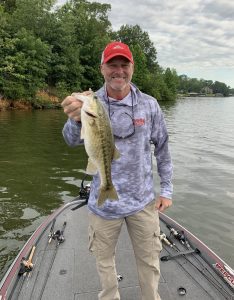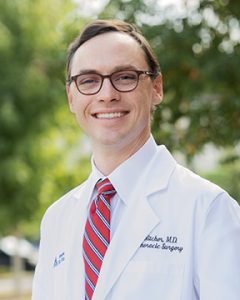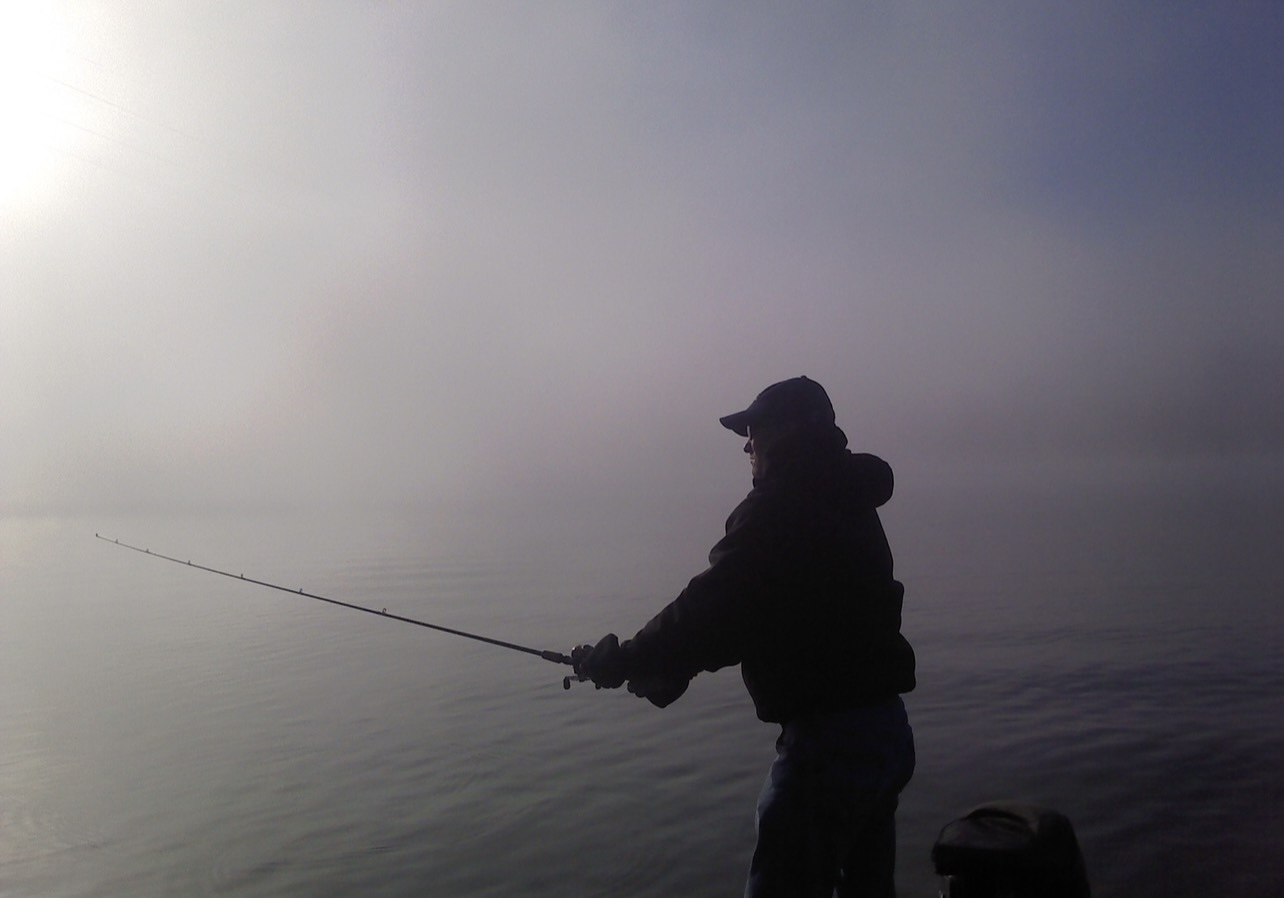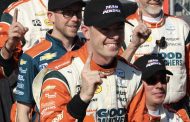By Crystal McGough, Associate Editor
TRUSSVILLE – When First Baptist Church Pinson’s senior pastor David Awtrey began having unexplainable discomfort in his chest, his first thought was that it surely must be reflux. After all, he’s 56-years-young and lives an active lifestyle, although he has been diagnosed as a juvenile diabetic.

David Awtrey
“I’m a very active person,” Awtrey said. “I hunt and fish, but when I would be at my hunting club working, I’d have these spells. I would get short of breath and have chest pains, but I thought it was reflux.”
One day in late October 2022, Awtrey was doing some work by himself in the fields at his hunting club when he had two of these spells back-to-back.
“It was right at dark and I thought, ‘This is bad,’” he said. “It still felt like reflux, because the pain was in the center of my chest; not down my arm or anything like that. I was trying to ignore the symptoms.”
Soon, however, Awtrey began looking for a place in the field where he could safely collapse without falling into an ant bed.
“That was my main concern; I did not want to land in an ant bed,” he said. “There was no help within miles.”
While struggling in the field, Awtrey said that, twice, he heard the “still small voice” of God say, “I could take you.”
“In my mind, in my heart, I knew it was the Lord saying, ‘Your life is in My hands,’” he said. “It was just that simple statement. And so, I got really determined that I was going to make it back to the truck, because that was my only way out of there.”
Awtrey did make it back to his truck, where he took some TUMS, once again convincing himself it was only acid reflux.
The following Tuesday, however, on Nov. 2, he sent a text message to his cardiologist, Dr. Brian Snoddy, at Ascension St. Vincent’s East. Dr. Snoddy had Awtrey come in first thing the next morning and set up a cardiac catheterization appointment for the following Monday, Nov. 7.
“I had the heart cath and the staff at St. Vincent’s East was phenomenal,” Awtrey said. “They put me at ease about the procedure.”
Upon waking from the procedure, Dr. Snoddy informed Awtrey that he had major blockage and was lucky to be alive. Four to five of Awtrey’s arteries were blocked 90-98%, and Dr. Snoddy told him that he was going to need open-heart surgery.
“I had not had a heart attack; I was just having symptoms that the Lord puts in our body – a pain, which is a gift at times,” he said. “You have got to go get checked, and I’m glad I did. I was wrong in trying to diagnose myself.”
Initially, Awtrey said he was considering going to Dr. James Davies, with UAB Hospital, but after speaking with cardiothoracic surgeon Dr. Adam Witcher at Ascension St. Vincent’s East, he knew Dr. Witcher was the right choice for him.
“Dr. Witcher talked with me and my family, and God, again, made it so clear, and I just blurted out, ‘You’re the one going to do my surgery,’” Awtrey said. “My daughter started crying, and my wife, too, and there was just this peace.”
Awtrey’s bypass surgery was scheduled for the next day.

Dr. Adam Witcher
“He had very severe coronary artery disease that was not amendable to stints, and he needed heart surgery,” Dr. Adam Witcher said. “Sometimes we are able to let people go home after their heart cath and come back for surgery, but his disease was so severe that he really needed to be in the hospital. So we kept him in the hospital and did his bypass surgery soon after.”
According to Dr. Witcher, Awtrey’s surgery went great, but circumstances could have been much different had Awtrey not reached out to his cardiologist.
“We bypassed all of the blocked vessels that needed to be bypassed and then he was out of the hospital in four days or so,” Witcher said. “He’s really just a great patient. He’s done everything right on his end and he’s healed up great.”
Since his surgery, Awtrey has been able to return to his active lifestyle and, more importantly, has been open and intentional about sharing his story, in hopes that other people will be aware of and pay attention to their symptoms and go to the doctor if necessary.
Awtrey said he knows of five men who have gotten checked out as a result of hearing his testimony and two of them found out they needed procedures, as well.
“People need to get checked and they don’t need to ignore symptoms,” Awtrey said. “Symptoms are there for a reason. When I pray for people in the hospital, I always say, ‘Thank you, Lord, for symptoms.’ They lead us to a solution. They lead us to a diagnosis.”








